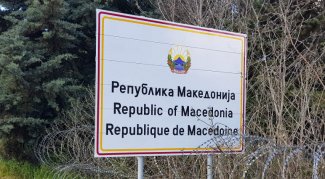A Greek-Macedonian compromise. Chances for ending the dispute

On 12 June, the prime ministers of Greece, Alexis Tsipras, and of Macedonia, Zoran Zaev, announced that a compromise solution had been developed on the subject of the name of the latter state, which has been disputed since 1993. One of the things which Skopje agreed to was to change the constitutional name of the country into the Republic of North Macedonia, in exchange for which Athens will discontinue blocking the country’s integration with NATO and the EU. The final text of the deal is to be signed on 16 June, when the two prime ministers are set to meet by Lake Prespa located on the border between the two countries. The deal has provoked numerous controversies in both countries, and its implementation is not a foregone conclusion. The existing findings do not rule out the risk that the next Greek governments will still block Macedonia’s integration with the EU and NATO. However, the very fact that the deal was struck proves that both parties are determined to end the dispute.
A hard way to a compromise
The agreed constitutional name of the state ‘the Republic of North Macedonia’ (Republika Severna Makedonija), pursuant to Greece’s main demand, will be used erga omnes, i.e. both in international relations and at home. The new name will replace both the name the Former Yugoslav Republic of Macedonia (FYROM) under which Macedonia was accepted into the UN in 1993 and which has been used by international organisations and some countries, including Greece, and also the constitutional name ‘the Republic of Macedonia’ used by most of those countries which maintain diplomatic relations with it.
Skopje undertook to remove any provisions from the basic law that might suggest that it has any territorial claims to the Greek province named Macedonia, for example, references to the Macedonian minority living abroad. In turn, the Greek concessions included the consent to officially use the adjective ‘Macedonian’ as the name of the language, thus recognising the Macedonian ‘ethnic identity’. However, Athens rejected the right to use this adjective with reference to the nation and the state. As a consequence, the government in Skopje agreed to change the names of state institutions and those financed with public funds into ‘North Macedonian’ within five years. In the case of citizenship, the phrases ‘Macedonian/citizen of the Republic of North Macedonia’ have been recognised as acceptable. The details of the deal revealed so far indicate that both parties have developed a compromise that takes into account the interests of both of them and enables the governments of the two countries to present it as a success.
The Macedonian-Greek negotiations were conducted by the offices of the prime ministers under the auspices of a UN mediator, Matthew Nimetz. The arrangements are to be implemented according to a strictly determined schedule that will lead to the Greek parliament ratifying the deal by the end of 2018. The first step will be the ratification of the agreement by the Macedonian parliament by an ordinary majority of the votes. Then the president is expected to sign the act. The next step will be withdrawing the Greek government’s protest against the launch of the EU accession negotiations with Macedonia (a decision to this effect could be passed at the meeting of the Council of the EU on 28-29 June). The Greek government has also undertaken to withdraw its objection to inviting Macedonia to join NATO, which may result in a positive decision from NATO for Macedonia already during the Brussels summit on 11-12 July this year. Athens emphasises that the unblocking of both processes will be conditional and dependent on the amendment of Macedonia’s constitution. The amendment of the basic law will be the subject of a referendum in Macedonia in autumn this year. Finally the amendment of the constitution must be approved by parliament by a two thirds majority. The final step in the implementation of the agreement will be its ratification by the Greek parliament along with a possible protocol to the North Atlantic Treaty on the accession of Macedonia.
Prime Minister Zoran Zaev, who took power in Macedonia in spring 2017, put an end to the practices of VMRO-DPMNE (the right-wing party which had ruled the country from 2006) which saw them drawing upon nationalist slogans and thus escalating tension at home and in relations with their neighbours. Zaev strongly advocates the implementation of the reforms required by the EU, the resolution of long-lasting bilateral disputes and a policy that is friendly to national minorities, including the Albanian minority (at around 25% of the country’s population, it is the largest minority). Zaev’s cabinet reached an agreement with Bulgaria already in August 2017, and the parliament adopted an act favourable for the Albanian minority in January this year. The deal with Greece fits in with Zaev’s policy of resolving difficult issues that have prevented integration with the EU and NATO and stabilising the situation in the country.
Challenges in the process of the implementation of the deal
To successfully implement the deal, it will be essential to stick to the schedule closely, which would allow the process to be concluded by the end of this year, and to convince the Macedonian public to support the compromise solution.
According to public opinion polls conducted in April this year, over 47% of respondents opposed any change in the name of their country, and almost 45% of ethnic Macedonians feel that maintaining the name of their country was more important than integration with the EU and NATO. In turn, the Albanian minority strongly supports the compromise. Decisions taken during the NATO Summit and the Council of the European Union favourable for Macedonia would be a key argument in convincing the public. However, in order for the decisions to be passed, the deal needs to be quickly ratified at the Macedonian parliament (which should not be a problem) and signed by President Ǵorge Ivanov who originated from the opposition party VMRO-DPMNE. The president and the leaders of his party harshly criticised the Greek-Macedonian arrangements and opposed amending the constitution. A presidential veto would most likely be rejected by the parliament, but a resulting extension of the ratification process may make the implementation of the deal more complicated.
Holding a referendum on amending the constitution will also be a challenge to Zoran Zaev’s government. The prime minister, in an attempt to achieve the highest possible turnout, will make efforts to combine the referendum with a snap parliamentary election. This would most likely ensure a better election result for Zaev’s party, which would make it easier to build the parliamentary majority necessary to amend the constitution. The government has not declared whether the referendum will be of an advisory or binding character. Nevertheless, it is unlikely that the government will disregard the result of the vote on such an important issue.
The opposition VMRO-DPMNE party will most likely make efforts to torpedo the implementation of the agreement, employing the slogans of betraying national interests. Critics of the deal in Macedonia and Greece have also tried to discourage the public from accepting it, emphasising that it is opening up the way for Macedonia’s NATO membership, which in their opinion is contrary to Skopje’s interests and will cause destabilisation in the region. Russia expressed its disapproval of the deal already at an earlier stage, which is likely to contribute to strengthening the anti-NATO propaganda in Macedonia, especially in the run-up to the referendum. Since the Macedonian-Greek deal will contribute to reducing tension in the region, it is contrary to the interests of Russia, which has been making efforts to slow down the integration of the Balkan states with the Euro-Atlantic structures and to build influence, capitalising on the weakness of the Balkan state structures.
The regional impact of the compromise
The possible resolution of the Greek-Macedonian dispute and clearing Macedonia’s the way to the EU and NATO accession would have a positive impact on the situation in the Western Balkans. The government led by Zoran Zaev, who chooses compromise solutions to regional disputes, differs from the other Balkan states aspiring to join the EU. The other leaders tend rather to strengthen their practices of authoritarian governance and reach out to solutions based on nationalist mobilisation, thus escalating the region’s instability. A successful Macedonian policy would show that compromise solutions bring tangible benefits in a relatively short time. The example of Macedonia, which used to be the leader of European integration until its integration with the EU and NATO was blocked by Greece in 2008, may also mobilise the other two countries which are already in the process of negotiating their accession – Serbia and Montenegro – to speed up reforms. Should the process of integration with the EU be unblocked, Zaev’s cabinet – lifted on a wave of public support for the integration – will most likely make efforts to accelerate the implementation of the reforms required by the EU. This will bring pressure on the other countries in the region which have so far been hindering reforms in areas vital from the point of view of integration, fearing that they will undermine the oligarchic governance model.


